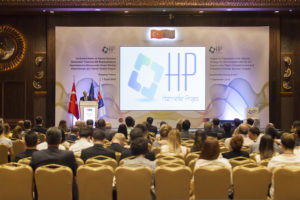
Technical Assistance for Implementation of Civil Society Dialogue and Civil Society Support Programmes (TR2015/DG/01/A5-01/001)
The overall aim of the project is to increase bilateral exchanges and cooperation between CSOs in Turkey and the EU at local, regional and national levels, to promote awareness raising initiatives on importance and benefits of membership of Turkey to the EU within Turkey and EU and on

Strengthening the Internal Market
Project is comprised of six components, as follows: Component 1: Improving the strategic, legislative and institutional framework in area of Free Movement of Goods Component 2: Improving the strategic, legislative and institutional framework in area of Free Movement of Services. Component 3: Improving the legislative alignment with the

Support for Policy Reform Accession and Effectiveness (SUPRAE)
In March 2020, North Macedonia began accession negotiations with the EU. However, the country still needs to meet EU standards, enact essential reforms, and institutional capacities to comply with the acquis and clusters. The project’s goal is to assist North Macedonia in its EU accession by increasing strategic

Support to Preparation of the National Strategy for Harmonization with the EU Acquis in the “Right of Establishment and Freedom to Provide Services” Chapter – Relaunch
The negotiations have been continuing between Turkey and the European Union on the subject of “Right of Establishment (ROE) and Freedom to Provide Services (FPS).” Thus, the project aimed to generate a comprehensive action plan that identifies all necessary legislative and administrative measures in order to comply with

Enhancement of Institutional and Administrative Capacity of Directorate of Transport, Maritime Affairs and Communications Research Centre
The project aims to enhance the institutional and administrative capacity of the Directorate of Transport, Maritime Affairs and Communications Research Centre (DoTMC Research Centre) by promoting research development and innovation in the transport sector. This project ensures the continuous supply of quality project proposals for the regular, timely

Technical Assistance for Gaziantep Regional Industrial Design and Modelling Centre (GETAM)
The Gaziantep region has great potential for several manufacturing areas; however, sometimes, it requires some support from well-qualified projects to achieve adequate results. Therefore, the overall objective of the project was to increase the competitiveness and economic welfare of the Gaziantep region. More specifically, it aimed to strengthen

